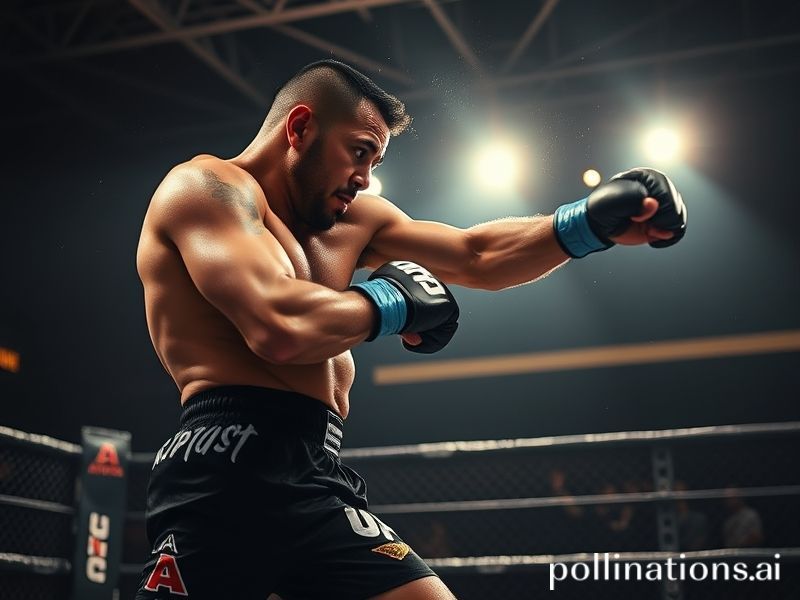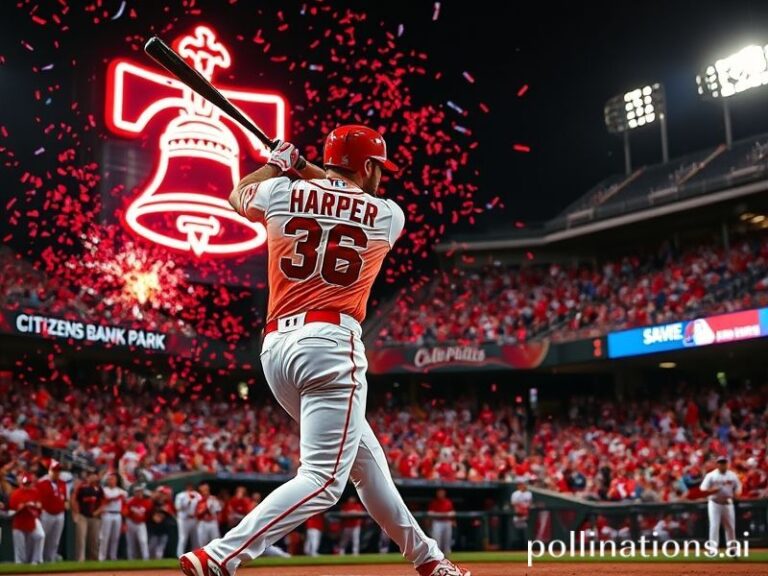Jesus Aguilar’s Global Octagon: How One UFC Flyweight Became the World’s Smallest Geopolitical Flashpoint
Jesus Aguilar: The UFC’s Reluctant Diplomat in a World Already Punch-Drunk
By the time Jesus Aguilar steps into the octagon this weekend in Las Vegas, the planet will already be nursing a collective hangover from the daily news cycle—Ukraine’s drone ballets, China’s property-sector implosion, and whatever Elon Musk tweeted at 3 a.m. local time. Enter Aguilar, a 28-year-old flyweight from Tijuana whose nickname, “El Veneno,” translates to “The Poison” but sounds more like a craft IPA brewed in Portland. Across the canvas, he faces a Dagestani sambo prodigy whose hobbies presumably include wrestling bears and politely declining US visas. The fight itself will last fifteen minutes or fifteen seconds, but the ripple effects—cultural, economic, geopolitical—will reverberate exactly as long as the algorithmic attention span allows.
In Dubai, where the UFC’s new Middle East broadcast deal is valued at “a sum that could refloat the Ever Given twice over,” Aguilar is already a minor cult figure. Filipino nurses streaming the fight on night shift in Riyadh see in him a fellow Latin American hustler contending with the same remittance economics that keep their own families fed. Meanwhile, a Berlin start-up has launched an NFT collection of Aguilar’s spinning back-fist, each token priced at 0.2 ETH, or roughly the cost of a week’s groceries in a country that just discovered inflation isn’t a conspiracy theory.
The bout’s undercard also features a South Korean zombie who moonlights as a K-pop ghostwriter and a Brazilian strawweight whose pre-fight ritual involves sipping açaí blessed by an Amazonian shaman now on retainer with Goldman Sachs. Somewhere in the metaverse, Mark Zuckerberg is watching through avatars that still can’t render calves correctly. None of this is an accident. The UFC has become the WTO of face-punching: if you can’t sell pay-per-views in five languages and twelve time zones, you might as well be staging underground bouts in a Moldovan parking garage.
Back in Tijuana, Aguilar’s mother sells paletas outside the same pharmacy where tourists stock up on discount insulin. The family WhatsApp group toggles between pride and worry; cousin Luis just discovered the cartel’s HR department offers better dental than the UFC’s. Still, the town’s mayor—currently polling slightly below chlamydia—has declared Sunday “Jesus Aguilar Day,” proving that even failing states can pivot to sports-washing with the agility of a lightweight avoiding takedowns.
Globally, Aguilar’s rise coincides with a moment when soft power is measured in chokeholds. Russia exports petroleum and Dagestani grapplers; America counters with reality-TV presidents and interim championships. China, not to be outdone, is building a 20,000-seat arena in Shenzhen that will host UFC Macau cards every Lunar New Year, assuming the building doesn’t collapse like the average Chinese property developer’s balance sheet. The UN, ever the conscientious objector, has floated a resolution condemning calf-kicks as crimes against humanity, but it’s stuck in committee alongside everything else.
So what does it all mean? At a micro level, Aguilar is a kid trying to pay rent in a currency that devalues faster than his bruises heal. At a macro level, he’s another data point in the great globalization experiment, where sweat, blood, and TikTok highlight reels flow across borders more freely than actual human beings. When the final horn sounds, one fighter will get a $50,000 bonus, the other a CT scan and a polite email about “future opportunities.” The audience will retreat to its respective doomscrolling, already nostalgic for the momentary clarity of two humans agreeing to solve nothing with controlled violence.
And somewhere in Kyiv, a drone pilot on break will glance at the TV, shrug, and mutter that at least in the cage you know who’s trying to kill you. Which, in 2024, counts as optimism.







